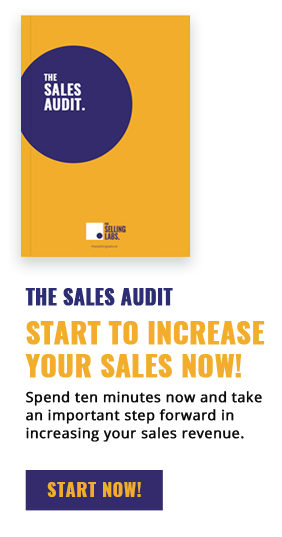Ann Campbell is Head of Communications at ED&F Man and has held senior communications positions at TK Maxx, Primark and the Food Standards Agency. She is the first to join us in The Leadership Corner – a new series of posts where we pick the brains of leaders to get insight into how they do what they do. In this interview with Ann we discuss the importance of comms, why you can’t learn it from a book and tips on how you can improve your communication skills.
You Can’t Get Good Comms From A Book!
There are hundreds of thousands of books written about the art of communications. Why is it so hard to get good communications right?
Ann Campbell: Because you can’t get good comms from a book!
It’s both an advantage* and an issue for communications that great PR does not have a professional route, like accountancy and law, for example. That can bring challenges in being taken seriously, even while the ‘nuts and bolts’ of the job become increasingly complex, and companies’ reputations more fragile. People who wouldn’t dream of telling the CFO how to produce the balance sheet still all seem to have an opinion on what makes good communications!
In my career, I’ve felt most needed by businesses in a crisis, but less so during the strategic processes at the heart of business planning. So comms are viewed as important to have to call on, but not to be part of big decision-making processes. And that’s why so many businesses don’t get it right.
*The advantage of this is that there are fewer barriers to entry. That isn’t to say you can do without your exams, but PR skills are not essentially bookish, they are very much about understanding human behaviour.
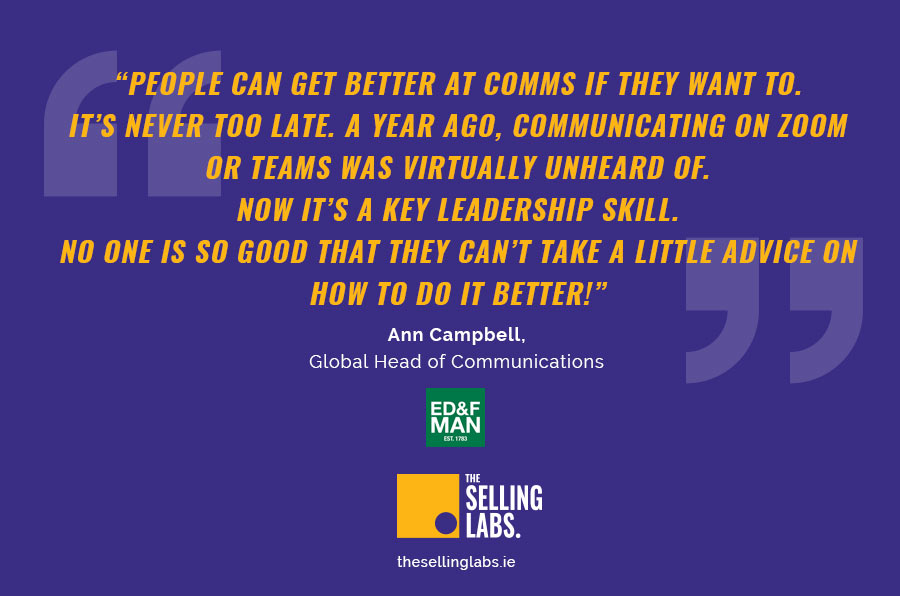
Can effective communications be learnt or are they inherent in a good leader?
Its very difficult for a person who’s a poor communicator to change. I’ve spent years trying to coach better performances from leaders in front of the camera or facing a packed meeting room. Limited empathy, poor speaking skills and awkward body language are really hard to work on. So is the tendency to a secretive, they-don’t-need-to-know attitude. So is hubris. What good leaders have in common is their humanity. They are able to connect with others, through words or actions. They are natural empathisers.
But people can get better if they want to. I urge a professional approach. Get media training for the senior team; employ the very best PR professionals you can and take their advice seriously; spend time with your HR and engagement people to find out what they are hearing in order to get your workforce firmly on board.
It’s never too late. A year ago, communicating on Zoom or Teams was virtually unheard of. Now it’s a key leadership skill. No one is so good that they can’t take a little advice on how to do it better!
As a senior communications head, how did you personally learn the skill? What is important to you in being able to constantly be seen as a skilled communicator?
I learned on the job, from good managers. I saw what they did, and tried to do it too. They took the time to help me learn from my mistakes and to coach me. I like to think I have a good reputation as someone who is sensible and calm. Early in my career, I wanted to be ‘important’, to be at the centre of things. Now I like knowing that people will feel they can turn to me and I will be able to help them. I never thought a reputation for “being sensible” would be significant to me.
It’s also vital to be open to modern methods. Comms used to be all about the media release and selling-in a story. Now we can put the story out ourselves! I love the creativity and immediacy that social sites provide, and I do like to see follower numbers and ‘likes’ tot up!
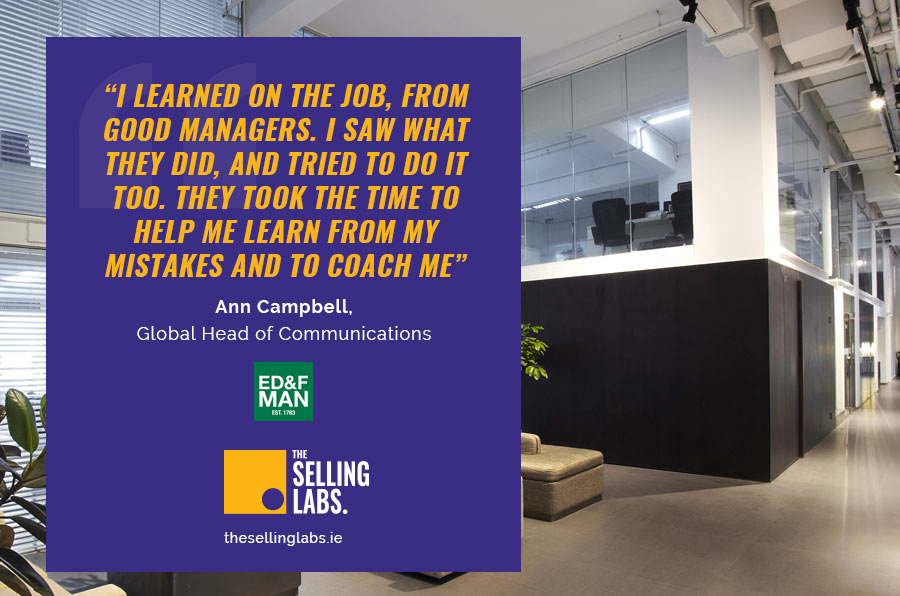
In a tense or challenging situation, what is important to remember about communicating effectively?
I hope never to be in a crisis without having prepared for being in a crisis. I have dealt with incidents that required urgent comms intervention. What rescued me from panic and dither was all the preparation I’d done. This runs from very basic items – everyone’s phone numbers in my mobile for example – right through to carefully crafted Q&As covering all the searching queries media, shareholders and employees might throw my way.
What are the two or three tips you would share on how to communicate well?
The key skill is to put yourself in the mind of a member of your target audience. What do you want that person to think, feel and do as a result of your communication? Let that be your mantra. If you think that through, and keep that forever in mind, you won’t go too far wrong.
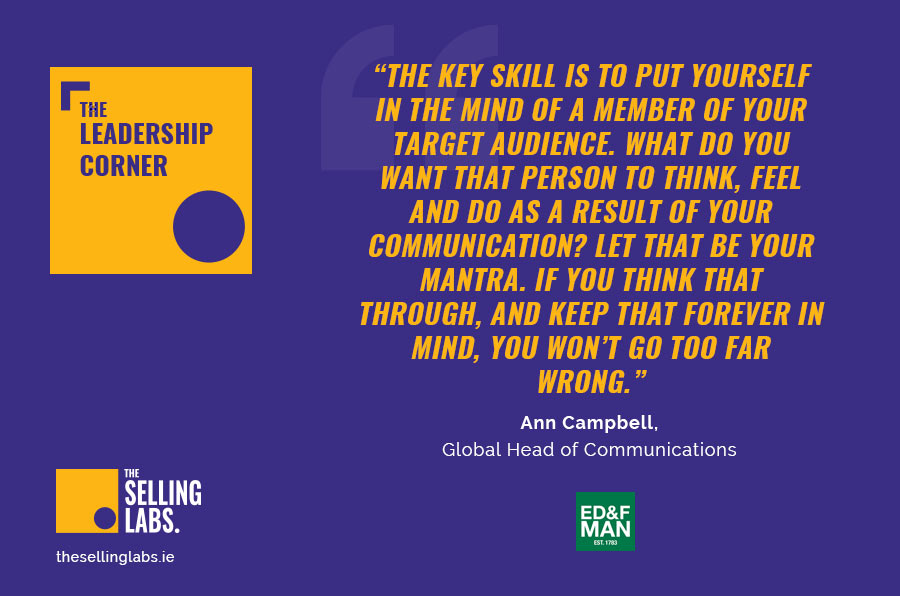
Who in the public eye would you say is an excellent communicator?
I greatly admired NZ Prime Minister Jacinda Ardern’s leadership during the Covid crisis, her communication style was decisive, honest and empathic (including for children concerned about the Tooth Fairy and the Easter Bunny!). German Chancellor Angela Merkel came over as authoritative and authentic, which made her very reassuring. Coincidence that they are both women?
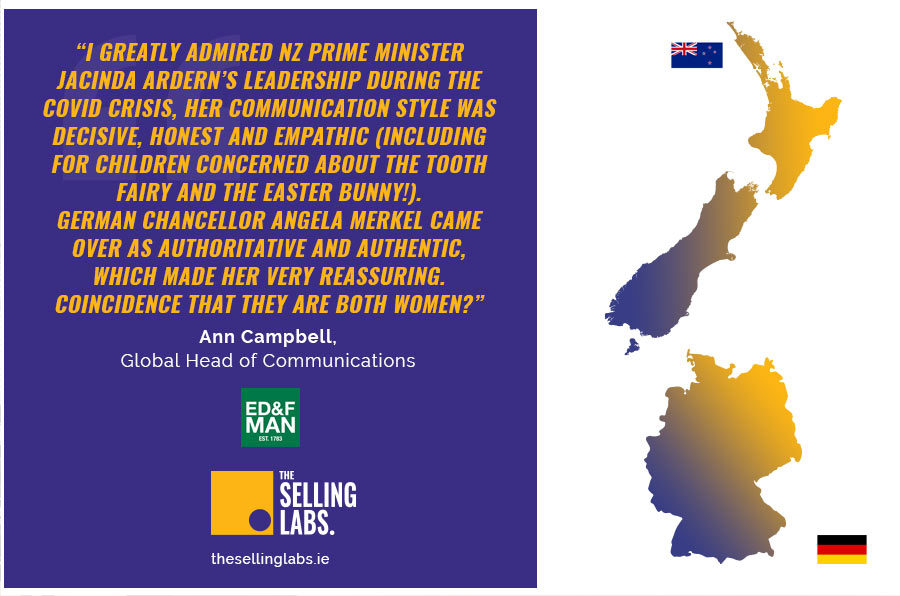
Is there anything else worth mentioning about communications?
It’s a fabulous career choice with job fulfilment coming from being so varied. I’m a writer, a strategist, a counsellor, an advisor. I’m also the business’s storyteller, unearthing news about deals, decisions, dates, colleagues, charity, fun facts. Nothing beats the satisfaction of finding out all the good things about our community and our shared working life.
Last question: who has been a great role model during your career in communications?
Emma Kane at Newgate. She’s a communications expert, utterly professional and strategic. And an absolute pleasure to work with.
Executive Communication
Overall the importance of executive communication can’t be emphasised enough. Thank you Ann Campbell for her candid, honest and enlightening answers about what it’s like working as a Head of Communications. Make sure you subscribe below so you don’t miss out on future Leadership Corner interviews and if you’d like to get involved as an interviewee, or need help increasing your sales, then get in touch today.
On Expert Sales Tips
Get regular updates delivered straight to your inbox with expert sales tips for tech & SaaS companies. Enter your email below and start to increase your sales now.


